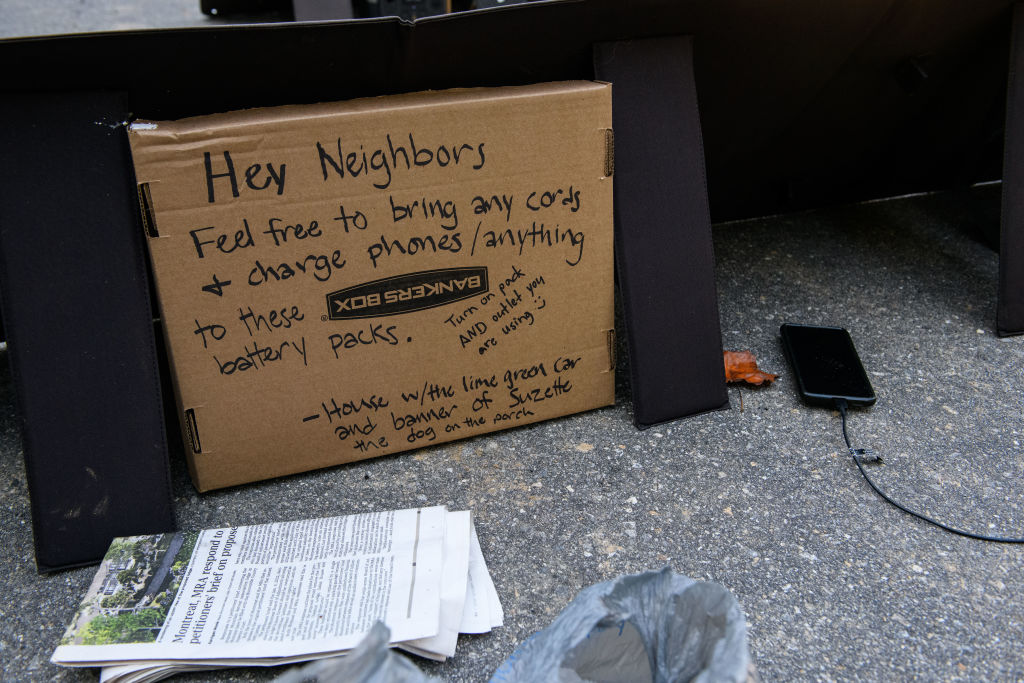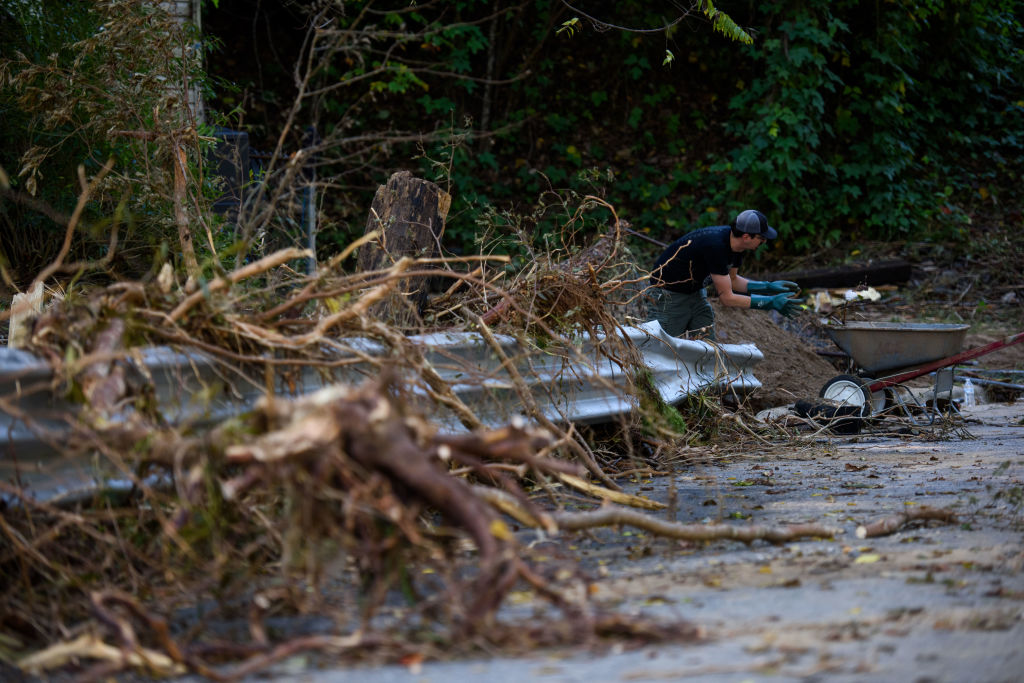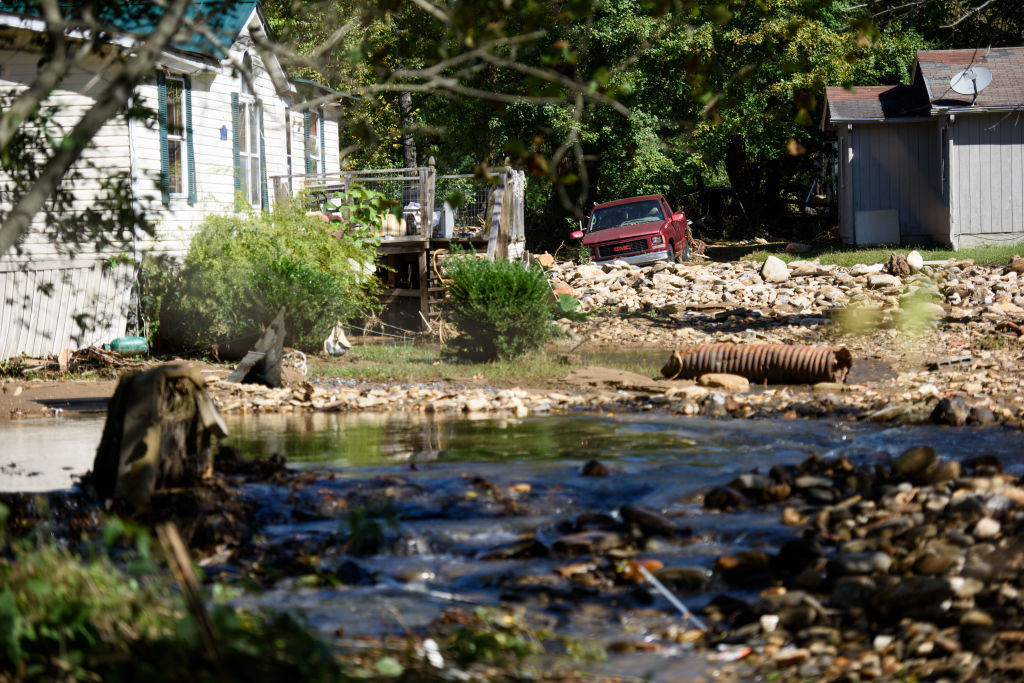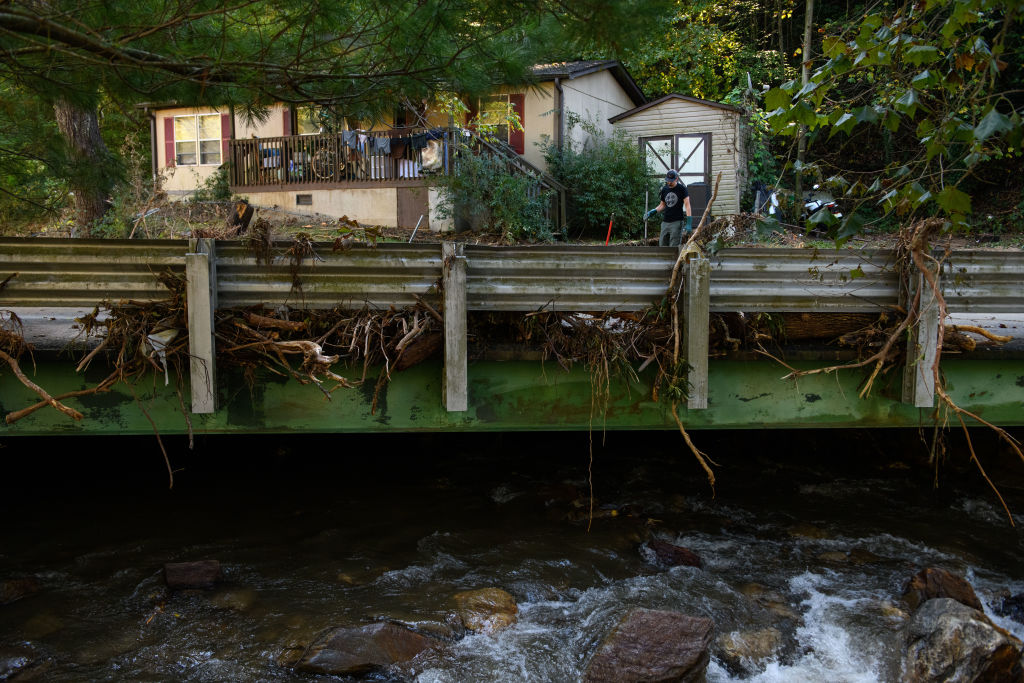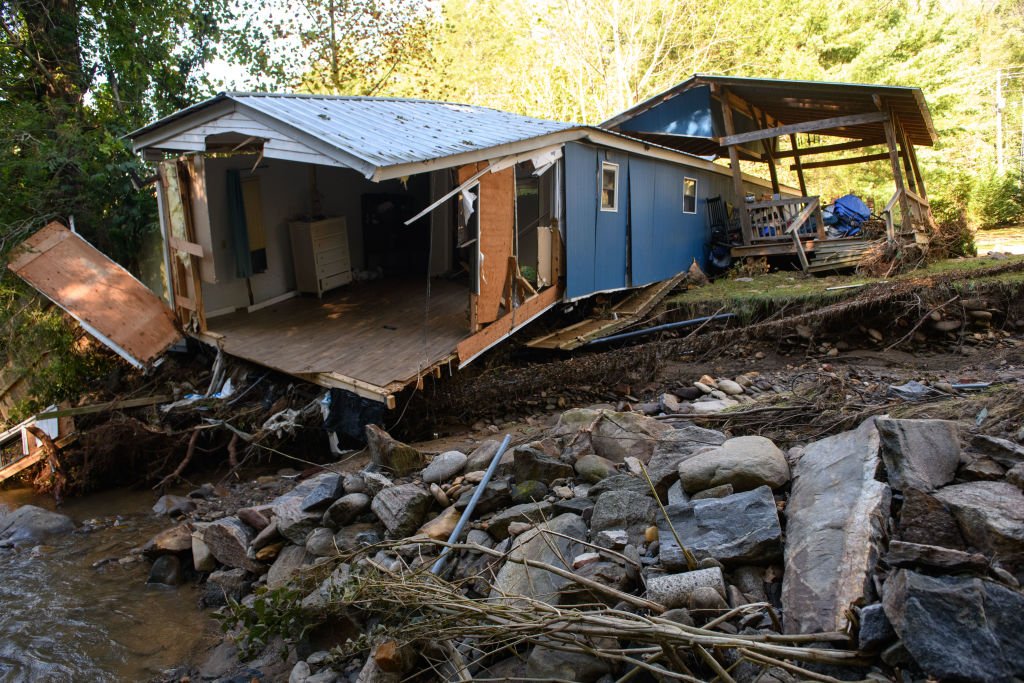(NewsNation) — First responders have worked tirelessly in the wake of Helene, many of them in action since the hurricane made landfall in Florida’s Big Bend region one week ago.
While police and fire agencies in affected counties continue to receive help from organizations across the U.S., first responders have been working upwards of 12-hour shifts per day.
Helene’s devastation
After making landfall in Florida as a Category 4 hurricane, Helene rapidly weakened to a tropical storm as it traveled north. However, wind and rain still caused significant damage to several states, including Georgia and the Carolinas.
FEMA has shipped more than 9.3 million meals, over 11.2 million liters of water, 150 generators, and over 260,000 tarps to communities affected by the storm.
One of the hardest-hit areas is western North Carolina, where Asheville and surrounding towns in the Blue Ridge Mountains experienced record-breaking floods. Following the storm, loss of power, water and cellphone service as well as damage to hundreds of roads left Asheville virtually cut off from the rest of the world.
As of Thursday night, 219,954 people are still without power in Georgia. In South Carolina, 288,855 people are without power, and in North Carolina, 244,969 people are without power.
The town of Black Mountain, North Carolina, says its fire and police departments have been able to account for more than 90% of the town’s residents, but they are still continuing to look for more.
So far, the North Carolina National Guard said as of Thursday afternoon, it has rescued over 450 people in 13 different counties. North Carolina’s Department of Adult Corrections, meanwhile, had to evacuate and relocate more than 800 prisoners today due to Hurricane Helene damage.
Death toll reportedly at 215
According to The Associated Press, more than 215 people have died from the storm so far, with 72 of those deaths in Buncombe County, North Carolina, alone. The number is expected to rise as officials and volunteers continue searching for the missing. Helene is now the deadliest hurricane to hit the U.S. mainland U.S. since Katrina in 2005.
Georgia Gov. Brian Kemp provided an update on Helene’s recovery Thursday, saying the storm did massive damage to the agriculture industry in the state. He said that the state declined federal assistance from the National Guard as they have had what they needed on a state level.
However, the Biden administration has agreed to cover 100% of the state’s cleanup cost for the first three months of recovery. So far, the federal government has provided more than $20 million to Hurricane Helene survivors.
At least 33 people died in Georgia from the storm, Kemp said.
Road to recovery after Helene
President Joe Biden released a statement to applaud the International Longshoreman’s Association and the United States Maritime Alliance for “coming together to reopen the East Coast and Gulf ports and ensure the availability to critical supplies for Hurricane Helene recovery and rebuilding.”
The Ohio Calcutta Fire Department, which traveled to assist affected areas, said its search and water team has teamed up with the Black Mountain Fire Department, National Guard and other law enforcement agencies in the area to conduct search-and-rescue missions.
Retired NASCAR driver Greg Biffle posted a video on social media Wednesday showing a person stranded in the mountains who was able to use a mirror and the sun to get his attention as he flew by in his private helicopter.
While search, rescue and recovery operations continue, several residents on the top of the mountains or in the valleys still don’t have access to power, cutting them off from the rest of the world.
Supplies have been airlifted in and delivered by mule train in some areas due to the difficult terrain and storm damage. Officials in Asheville have said it could be several weeks for critical services, including water, to be restored.
In Asheville on Thursday, groups of volunteers, many of whom didn’t have power themselves, conducted welfare checks for people not able to get in touch with loved ones.
“We’re looking to make sure they’re OK, or are they ill? Do they need medicines? Do they need food? Or maybe even worse,” Mike Vernon, one volunteer, told NewsNation.
One group said they had fielded 15,000 inquiries from people not able to get in touch with their loved ones.
Nonprofits, charity groups and volunteers in other areas have also stepped up to make sure people cut off from society can get the supplies they need.
“We are so grateful,” Black Mountain, North Carolina, resident Nancy McDaniel said. “I think everyone, especially on our street, was in a panic because we didn’t know about the water and that was the worst.”
McDaniel continued, “It’s been devastating and inspiring at the same time. We are a mountain town that thrives on tourism and visitation. We are proud of our beautiful mountains here, and it’s been so hard to see the devastation; but at the same time, I have never met so many of my neighbors and just seen how everybody comes to check on each other.”
Altogether, people in Black Mountain and other areas affected by Helene are exhausted. Every day, the mountain community has a town meeting in the park to update people on the efforts being conducted in the wake of Helene.
Emotions remain high as many have lost everything, the death toll hits close to home, and many witness their community nearly destroyed.
Biden and Harris’ firsthand look
President Joe Biden flew over the devastation in North and South Carolina on Wednesday, getting a firsthand look at the mess left by a storm that now has killed around 200 people.
Speaking afterward in Raleigh, North Carolina, Biden praised the Democratic governor of North Carolina and the Republican governor of South Carolina for their responses to the storm, saying that in the wake of disasters, “we put politics aside.”
“Our job is to help as many people as we can as quickly as we can and as thoroughly as we can,” he said.
That includes a commitment from the federal government to foot the bill for debris removal and emergency protective measures for six months. The money will address the impacts of landslides and flooding and will cover the costs of first responders, search-and-rescue teams, shelters and mass feeding.
“We’re not leaving until you’re back on your feet completely,” Biden said.
Vice President Kamala Harris traveled to neighboring Georgia, where she said the president had approved a request to pick up the tab for similar emergency aid there for three months.
Biden also went to disaster areas in Georgia and Florida on Thursday.
“I know this isn’t the first time a hurricane has hit this area. Over a year ago, a hurricane hit the same communities, and just a couple of months ago, Hurricane Debby did the same thing,” Biden said after surveying the damage in Georgia. “Three in a row. You’ve been through hell. I want you to know I see you, hear you, I agree with you, and I promise you we have your back. We’re going to stay until you’re restored.”
NewsNation’s Julia Eisen and The Associated Press contributed to this report.

